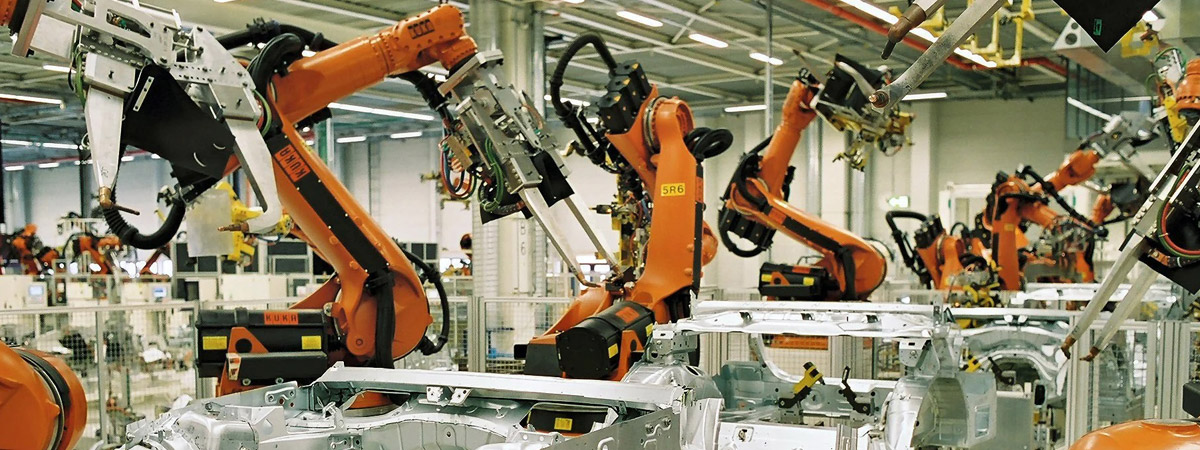
Security for industrial infrastructures is likely to get more attention with the continuing growth of the Internet of Things The global industrial cyber security market is expected to grow 8% between 2020 and 2027, according to research by Fortune Business Insights Among the emerging market trends is the integration of industrial cyber security products with advanced cloud services, needed to monitor and analyze growing volumes of data
Deploying strong cyber security measures for IT systems and networks is one of the biggest corporate priorities today. What might not get as much attention is security for industrial infrastructures, but that’s likely to change with the continuing growth of the Internet of Things (IoT) and the emergence of new threats aimed at industrial operations.
The National Institute of Standards and Technology (NIST), part of the U.S. Department of Commerce, has noted that despite the threats of cyber attacks on computer-controlled industrial systems, users of these systems can be hesitant to adopt common security technologies because of concerns about their impact on system performance.
Typical industrial systems might include supervisory control and data acquisition (SCADA) servers, used to control industrial processes locally or at remote locations and interact with devices such as sensors, motors, pumps, valves, and human-machine interface (HMI) software. Others are programmable logic controllers (PLC), industrial computers used to control of manufacturing processes such as assembly lines and robotic devices.
Based on expected spending patterns, industrial security will be a growing area of focus for many organizations. A recent report by research firm Fortune Business Insights predicts that the global industrial cyber security market will reach $29.41 billion by 2027, up from $15.84 billion in 2019. The compound annual growth rate (CAGR) for the market is expected to be 8% between 2020 and 2027.
The increasing acceptance of IoT solutions in cloud security applications will have a “tremendous impact” on market growth, the report said. Other growth factors include increased implementation of emerging technologies such as 5G networks, big data, and artificial intelligence (AI) across industries. There will be increased demand for solutions such as firewalls, antivirus software, intrusion detection systems (IDS) and others to protect industrial systems and networks.
Europe is expected to account for the largest share of revenue during the forecast period due to the heavy investment in the advancement of secure IT infrastructure in the region, the report said. The excessive demand for robots in automobile production will further help the expansion of the market in Europe.
In terms of sectors, the discrete manufacturing industry (automotive, electronics, heavy manufacturing, packaging, aerospace and defense, and others), is expected to experience a rapid growth rate for industrial security investments because of heavy demand for IoT-enabled devices and 5G networks.
Among the factors inhibiting growth of the industrial cyber security market are the lack of knowledge about cyber security tools and their advantages in developing countries across Asia Pacific, Middle East and Africa, and South America; and the lack of experts and professionals to operate industrial cyber security platforms in developing countries.
Among the emerging market trends is the integration of industrial cyber security products with advanced cloud services, which are needed to monitor and analyze the massive amounts of information companies are taking in or generating. Vendors are focused on developing and integrating cloud-based cyber security products for operational technology (OT) and industrial control systems applications across industries, the report said.
The industrial cyber security market is primarily driven by the rising adoption of cloud-based industrial security services and industrial robots that leverage artificial intelligence platforms, the report said. These are being adopted for use by manufacturing and industrial plants.
“Cyber security solutions are installed across industrial robots to secure them from cyber attacks and make them run smoothly,” the study said. As more companies adopt more industrial robots, the security risks could rise as well.
Of the various components of the market, software is likely to have the largest market share, according to the research. This growth is mainly due to the increasing demand for software tools such as distributed denial of service (DDoS) systems, firewalls, SCADA encryption, virtualization security, antivirus/antimalware software, and others.
Key players in the market are focusing on developing advanced industrial security software products across industries such as automotive, oil and gas, energy, and others.
The hardware segment is also expected to see substantial growth during the forecast period, given the rising adoption of networking devices such as routers, gateways, controllers, industrial Ethernet switches and others. The service segment of the market is expected to see the highest CAGR during the forecast period, due to the rising adoption of operational technology and industrial control systems.